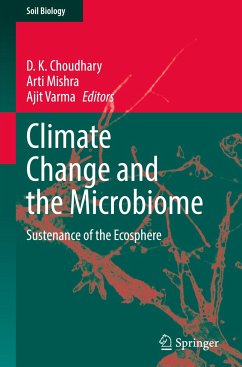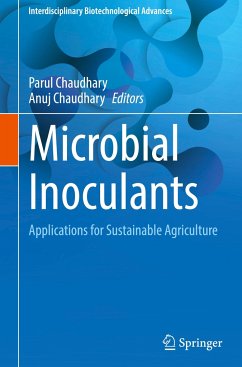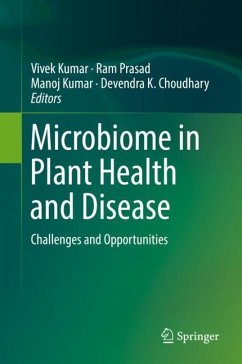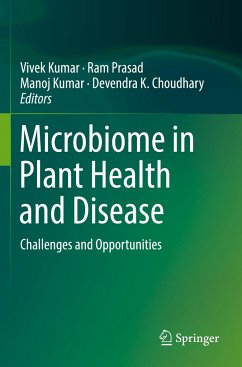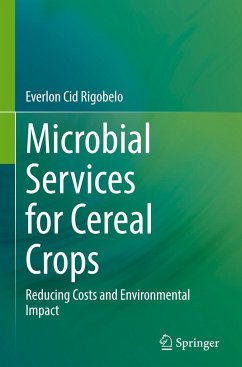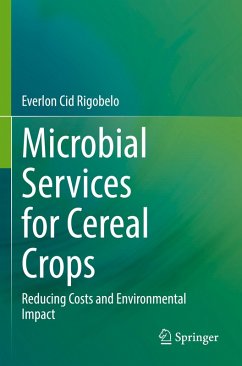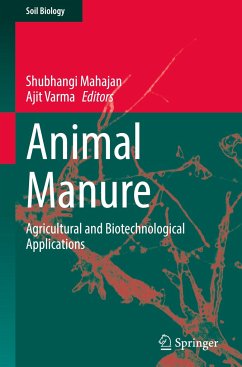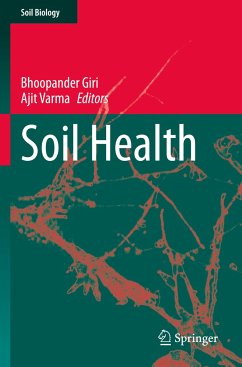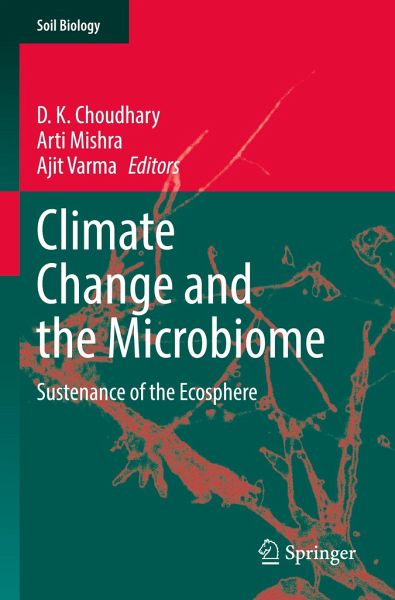
Climate Change and the Microbiome
Sustenance of the Ecosphere
Herausgegeben: Choudhary, D. K.; Mishra, Arti; Varma, Ajit
Versandkostenfrei!
Versandfertig in 6-10 Tagen
174,99 €
inkl. MwSt.

PAYBACK Punkte
87 °P sammeln!
This book highlights the impact of climate change on the soil microbiome and its subsequent effects on plant health, soil-plant dynamics, and the ecosphere. It also discusses emerging ideas to counteract these effects, e.g., through agricultural applications of functional microbes, to ensure a sustainable ecosystem.Climate change is altering the soil microbiome distributions and thus the interactions in microbiome and plant-soil microorganism. Improvement of our understanding of microbe-microbe and plant-microbe interaction under changing climatic conditions is essential, because the overall i...
This book highlights the impact of climate change on the soil microbiome and its subsequent effects on plant health, soil-plant dynamics, and the ecosphere. It also discusses emerging ideas to counteract these effects, e.g., through agricultural applications of functional microbes, to ensure a sustainable ecosystem.
Climate change is altering the soil microbiome distributions and thus the interactions in microbiome and plant-soil microorganism. Improvement of our understanding of microbe-microbe and plant-microbe interaction under changing climatic conditions is essential, because the overall impact of these interactions under varying adverse environmental conditions is lacking. This book has been designed to understand the impact of climate change, i.e., mainly salt and drought stress, on the soil microbiome and its impact on plant, yield, and the ecosphere.
The book is organized into four parts: The first part reviews the impact of climate change on the diversity and richness of the soil microbiome. The second part addresses effects of climate change on plant health. The third part discusses effects on soil-plant dynamics and functionality, e.g., soil productivity. The final part deals with the effects of climate change on ecosystem functioning and also discusses potential solutions.
The book will appeal to students and researchers working in the area of soil science, agriculture, molecular biology, plant physiology, and biotechnology.
Climate change is altering the soil microbiome distributions and thus the interactions in microbiome and plant-soil microorganism. Improvement of our understanding of microbe-microbe and plant-microbe interaction under changing climatic conditions is essential, because the overall impact of these interactions under varying adverse environmental conditions is lacking. This book has been designed to understand the impact of climate change, i.e., mainly salt and drought stress, on the soil microbiome and its impact on plant, yield, and the ecosphere.
The book is organized into four parts: The first part reviews the impact of climate change on the diversity and richness of the soil microbiome. The second part addresses effects of climate change on plant health. The third part discusses effects on soil-plant dynamics and functionality, e.g., soil productivity. The final part deals with the effects of climate change on ecosystem functioning and also discusses potential solutions.
The book will appeal to students and researchers working in the area of soil science, agriculture, molecular biology, plant physiology, and biotechnology.



